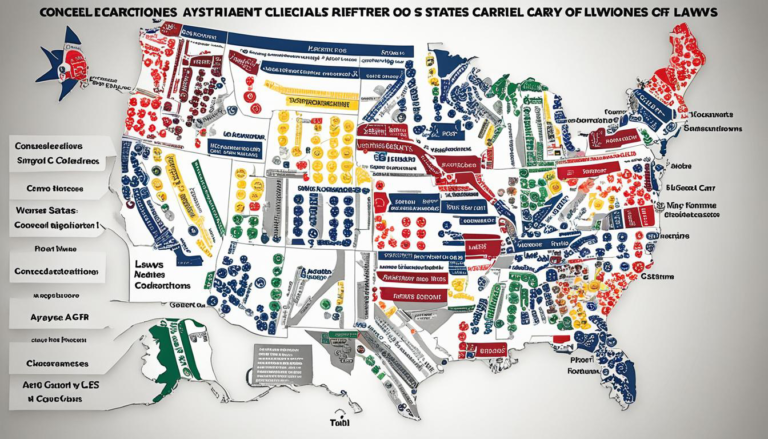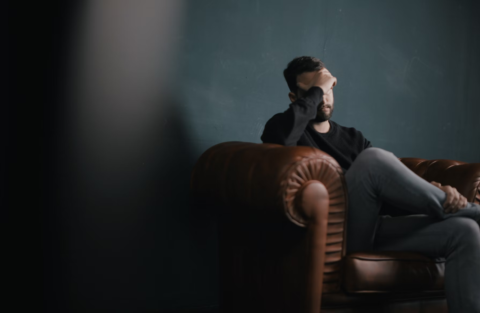In today’s world, concealed carry laws are more important than ever. People want to protect themselves but must follow state laws. This guide will help you understand these laws across the U.S. It aims to make you informed and law-compliant.
Carrying a hidden gun for safety is different everywhere. It’s key to know these differences. The rules and limits can affect your right to carry a gun responsibly.
This guide will cover what affects concealed carry laws. It will help you with the application process, training, and keeping up with changing laws. It’s useful for both experienced gun owners and those new to self-defense. You’ll learn how to make smart choices and use your rights responsibly.
Introduction to Concealed Carry Laws
Concealed carry is about carrying a hidden gun for personal safety. Gun laws change a lot in the U.S. It’s important for people to know their state’s rules to follow the law and protect their right to defend themselves.
What Is Concealed Carry?
With concealed carry, people can hide a handgun under their clothes for safety. Each state has its own rules for who can carry a hidden gun and when. These laws are complex and vary a lot.
Importance of Understanding State Laws
Knowing your state’s concealed carry laws is key to avoiding legal trouble. Not following these laws can lead to big problems, like criminal charges or losing your right to carry a gun. Staying up-to-date with state concealed carry laws helps gun owners use their self-defense rights safely.
| State | Concealed Carry Permit Required | Minimum Age | Training Requirements |
| California | Yes | 21 | 16 hours of training |
| Texas | Yes | 21 | 16 hours of training |
| Florida | Yes | 21 | 16 hours of training |
Key Factors in Concealed Carry Regulations
Understanding concealed carry laws is complex. It involves looking at political views, police actions, public safety, and balancing individual rights with safety. These elements shape the rules in each state.
Political views are a big factor. Conservative states often have easier concealed carry factors. Liberal states have stricter state gun laws. Police also play a big role, focusing on public self-defense policies or gun rights.
Crime rates and the fear of violence affect concealed carry laws too. States with high crime might have tougher rules. Those with lower crime rates might be more relaxed.
| State | Concealed Carry Factors | State Gun Laws | Self-Defense Policies |
| California | Restrictive | Strict | Moderate |
| Texas | Permissive | Lenient | Supportive |
| New York | Restrictive | Strict | Limited |
| Florida | Permissive | Moderate | Supportive |
The debate over concealed carry laws is ongoing. It’s about balancing individual rights with public safety. Each state makes its own rules based on its political, social, and police priorities. In some states, understanding concealed carry laws involves knowing specific ammunition regulations, including details like the legality of 380 bullets. These laws are crucial for responsible gun ownership and self-defense practices nationwide.
Concealed Carry Permit Requirements
Getting a concealed carry permit is key for those who want to carry a hidden gun for self-defense. Each state has its own rules and steps for this process. It’s important to know what’s needed in your state.
Application Process
To apply for a permit, you usually need to fill out a form and show your ID. You’ll also go through a background check. Some states make you pay a fee too.
The time it takes to review your application varies. It could be weeks or even months. You might also need to talk to police in person.
Training and Education
Many states require you to finish a gun safety course before getting a permit. This course teaches you how to handle a gun safely, how to calm down conflicts, and your legal duties with a hidden weapon. It’s vital to complete this training to get a permit and follow the law.





